第34章 6(2)
By addition then, also, there is potentially an infinite, namely, what we have described as being in a sense the same as the infinite in respect of division. For it will always be possible to take something ah extra. Yet the sum of the parts taken will not exceed every determinate magnitude, just as in the direction of division every determinate magnitude is surpassed in smallness and there will be a smaller part.
But in respect of addition there cannot be an infinite which even potentially exceeds every assignable magnitude, unless it has the attribute of being actually infinite, as the physicists hold to be true of the body which is outside the world, whose essential nature is air or something of the kind. But if there cannot be in this way a sensible body which is infinite in the full sense, evidently there can no more be a body which is potentially infinite in respect of addition, except as the inverse of the infinite by division, as we have said. It is for this reason that Plato also made the infinites two in number, because it is supposed to be possible to exceed all limits and to proceed ad infinitum in the direction both of increase and of reduction. Yet though he makes the infinites two, he does not use them. For in the numbers the infinite in the direction of reduction is not present, as the monad is the smallest; nor is the infinite in the direction of increase, for the parts number only up to the decad.
The infinite turns out to be the contrary of what it is said to be. It is not what has nothing outside it that is infinite, but what always has something outside it. This is indicated by the fact that rings also that have no bezel are described as 'endless', because it is always possible to take a part which is outside a given part. The description depends on a certain similarity, but it is not true in the full sense of the word. This condition alone is not sufficient: it is necessary also that the next part which is taken should never be the same. In the circle, the latter condition is not satisfied: it is only the adjacent part from which the new part is different.
Our definition then is as follows:
A quantity is infinite if it is such that we can always take a part outside what has been already taken. On the other hand, what has nothing outside it is complete and whole. For thus we define the whole-that from which nothing is wanting, as a whole man or a whole box. What is true of each particular is true of the whole as such-the whole is that of which nothing is outside. On the other hand that from which something is absent and outside, however small that may be, is not 'all'. 'Whole' and 'complete' are either quite identical or closely akin. Nothing is complete (teleion) which has no end (telos); and the end is a limit.
Hence Parmenides must be thought to have spoken better than Melissus. The latter says that the whole is infinite, but the former describes it as limited, 'equally balanced from the middle'. For to connect the infinite with the all and the whole is not like joining two pieces of string; for it is from this they get the dignity they ascribe to the infinite-its containing all things and holding the all in itself-from its having a certain similarity to the whole. It is in fact the matter of the completeness which belongs to size, and what is potentially a whole, though not in the full sense. It is divisible both in the direction of reduction and of the inverse addition. It is a whole and limited; not, however, in virtue of its own nature, but in virtue of what is other than it. It does not contain, but, in so far as it is infinite, is contained. Consequently, also, it is unknowable, qua infinite; for the matter has no form.
(Hence it is plain that the infinite stands in the relation of part rather than of whole. For the matter is part of the whole, as the bronze is of the bronze statue.) If it contains in the case of sensible things, in the case of intelligible things the great and the small ought to contain them. But it is absurd and impossible to suppose that the unknowable and indeterminate should contain and determine.